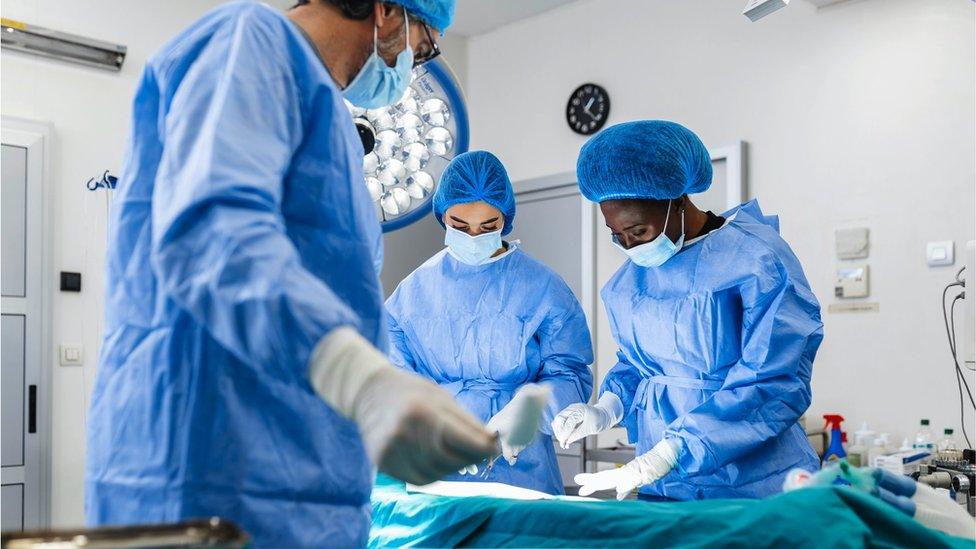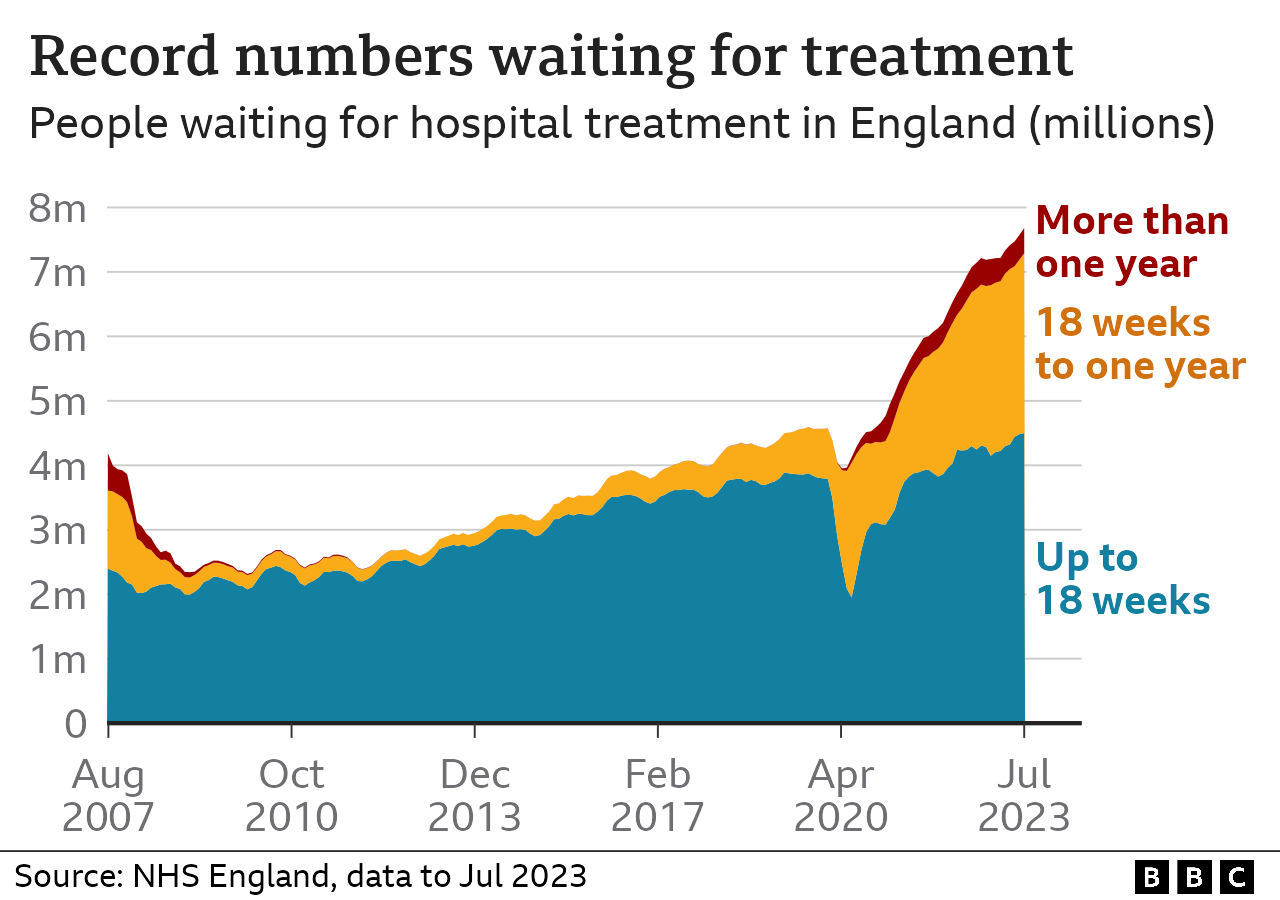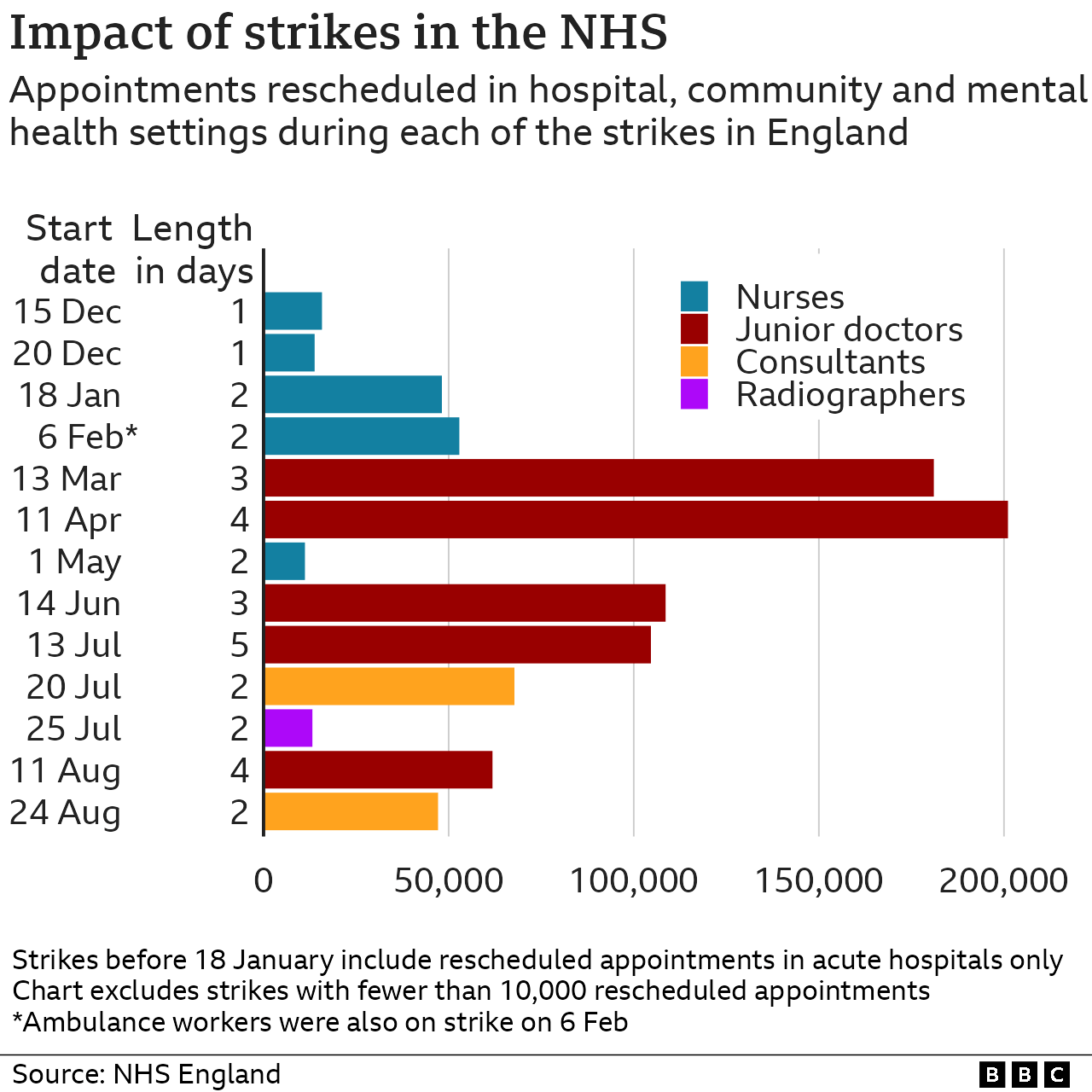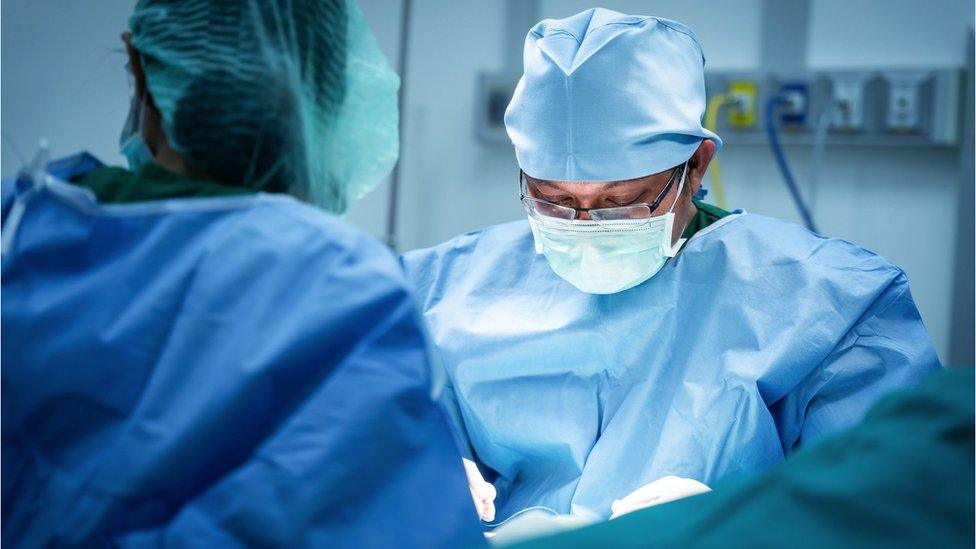Target to cut hospital waiting list in doubt - PM
- Published
- comments

The government's target to reduce the hospital waiting list in England is in doubt, the prime minister has admitted.
Rishi Sunak told BBC News it would be "very hard" to reduce the waiting list by next March as promised, pinning the blame on the strikes by doctors.
Latest figures show a record 7.68 million people were waiting for treatment at the end of July.
This represents nearly one in seven people and is a jump of more than 100,000 in a month.
The prime minister told BBC News it was "disappointing" the waiting list was growing.
"Industrial action is a significant cause of that," he said.
"We were making very good progress before industrial action.
"With industrial action, it's very hard to continue to meet these targets."
He was "confident" the target would have been met without the strikes, which have seen both junior doctors and consultants walk out.
"The evidence for that is before industrial action really intensified we had actually met our interim target of virtually eliminating the number of people who were waiting a year and a half," Mr Sunak added.
It comes as the government has announced an extra £200m for the NHS this winter, following talks with health bosses on Wednesday.
This is on top of a £250m boost already announced earlier in the summer, which is helping pay for 5,000 extra hospital beds and 10,000 virtual beds where patients are supported at home by doctors for conditions such as respiratory and heart problems that would normally lead to a hospital admission.

But Labour shadow health secretary Wes Streeting said blaming striking doctors was "deeply cynical" and amounted to looking for "a scapegoat".
He said the breakdown of talks with the British Medical Association was "gross incompetence" by the prime minister.
Close to a million appointments and treatments have had to be postponed since industrial action in the NHS began in December.

Are you on an NHS waiting list? You can get in touch by emailing haveyoursay@bbc.co.uk., external
WhatsApp: +44 7756 165803, external
Tweet: @BBC_HaveYourSay, external
Please read our terms & conditions and privacy policy

Are strikes to blame?
The waiting list had been creeping up in the decade before the pandemic.
When Covid hit, the numbers rose by nearly three million in just over two years.
But during last winter, that rise appeared to have plateaued.
For six months from September, the total on the waiting list changed little.
Modelling had suggested this was likely to last a year, before the total number started falling.

But the data in March showed the numbers rising again - and this has continued ever since.
March was the month doctors' strikes began - and they are the most disruptive.
However, there can be other reasons why the waiting list can go up - factors such as staffing shortages can lead to cancelled treatments too.
Even taking into account the impact of the strikes the NHS is still doing fewer operations for example than it was before the pandemic.
The NHS does not appear to be firing on all cylinders even when there is no strike action.
The numbers needing care and joining the waiting list are also going up too.
Coming to a definitive conclusion is, therefore, very hard.
Are doctors still striking?
Next week will see junior doctors and consultants in England walk out at the same time for the first time in the history of the NHS.
Consultants will take strike action on Tuesday and Wednesday, while junior doctors start their three-day walkout on Wednesday.
Emergency care will be staffed throughout.
Both groups are planning more strikes next month.
Pay talks have stalled and ministers are calling this year's rise - consultants will receive 6% extra and junior doctors nearly 9% - a "fair and final" settlement.
BMA leader Prof Philip Banfield said: "If the health secretary really wants to support the NHS then his next step should be to re-open talks with doctors and come to the table with a credible offer to put an end to strikes and to demonstrate he does really care about our patients."
Louise Ansari, head of patient watchdog Healthwatch England, said she feared long waits for care were "inevitable" for some time to come.
"With demand for care likely to rise this winter, people need to have confidence in NHS services," she said.
"However, our research shows that people's confidence in accessing timely care now is lower than it was at the start of the year."
Related topics
- Published9 December 2022
- Published25 May 2023
